Karuizawa is one of the most prominent summer resorts. It is located at about 1000 m above sea level. The temperature is about 7.8 degrees Celsius on annual average, and rises up to only about 20 degrees Celsius even during the summer. It prospered as a post-station town on the Nakasendo (a roadway or highway) in the Edo Period. Although it lost its prosperity in the early years of the Meiji Period, in 1888, it recovered its prosperity again as a summer resort by thanks to a Canadian missionary, Alexander Croft Shaw.
We reached Karuizawa by Hokuriku Shinkansen “Asama.” It took only about one hour and 20 minutes from Tokyo Station to Karuizawa Station.
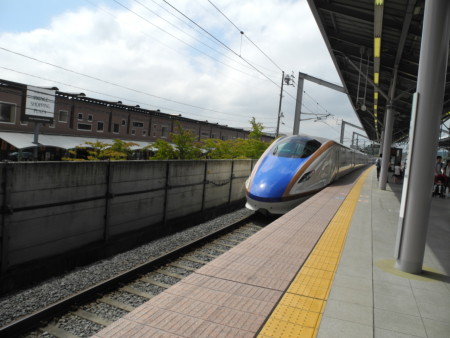
This is JR Karuizawa Station.
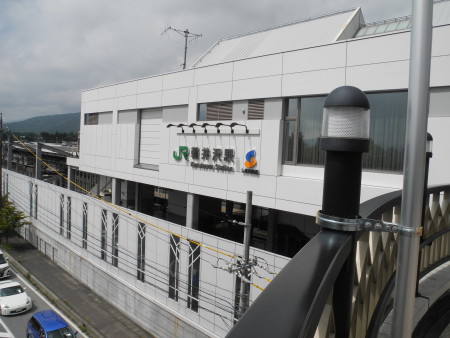
This is a view near the JR Karuizawa Station.
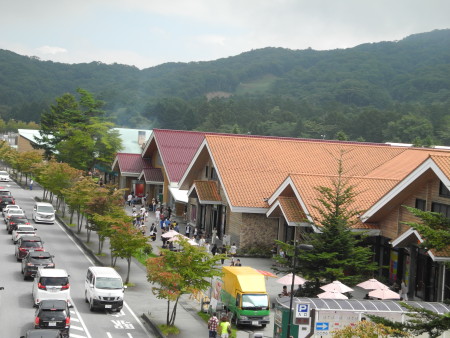
There are ski slopes right before our eyes. (You can reach that area on foot.)

This is a Koban (a police box) in front of the Station.
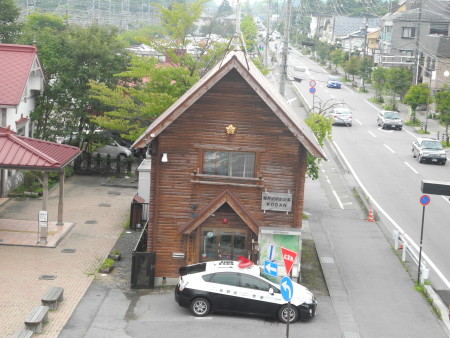
This is the former building of the Karuizawa Station.
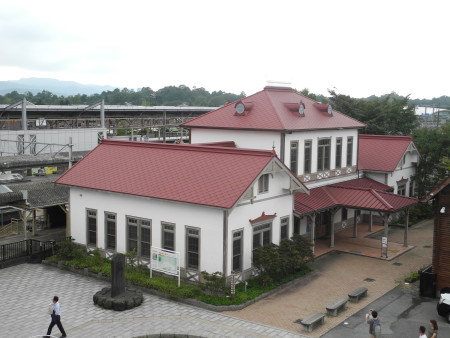
First, we started from the Station towards Usuitoge (Usuitoge Pass) on foot. Usuitoge is famous as a difficult pass, and we expected a wonderful view from an observation platform …
We couldn’t reach there on foot. You should use a car to go there. You can also take a bus.
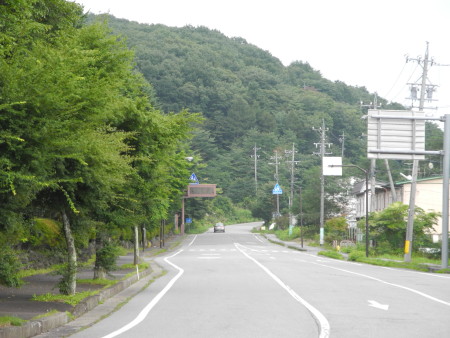
This is a monument of Kyu-Usuitoge (old-Usuitoge), but there were many weeds and nothing else could be seen.
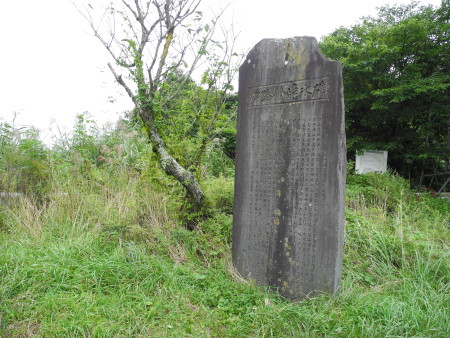
This is a mountain we saw while on our way to Usuitoge, called “Hanareyama.”
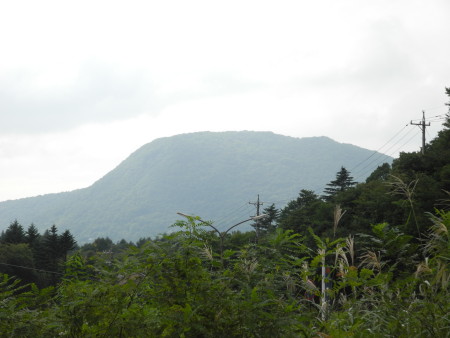
Next, we took a car. There are many rental bicycle shops, and you can travel around Kyu-Karuizawa area by bicycle, because the slopes there are not so steep.
We visited St. Paul’s Catholic Church. This church was founded in 1935 by a British priest Father L. Ward. It’s characterized by a triangular roof with a sharp gradient, exposed concrete walls, etc.
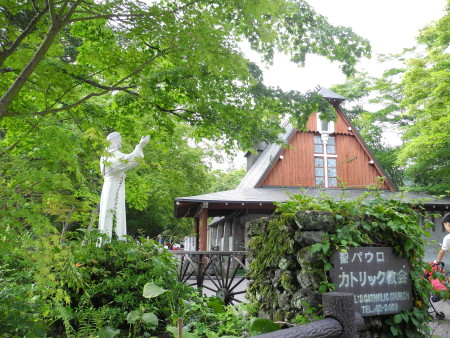
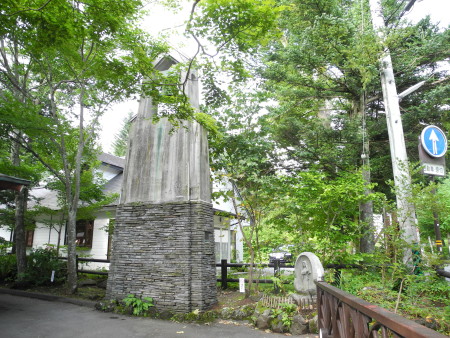
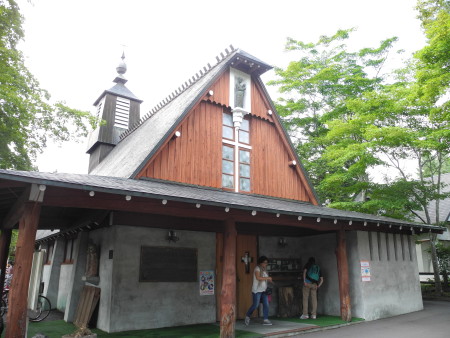
This is the interior of the church.
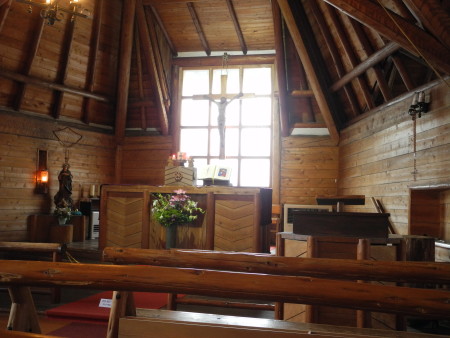
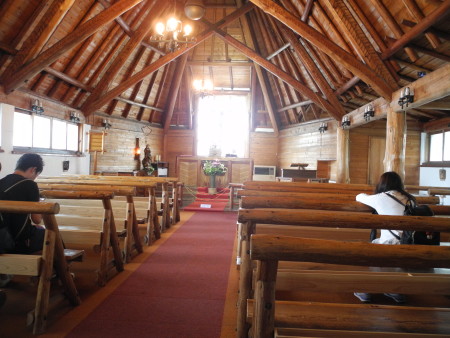
There are pictures of about 15 cm square made of clay, showing the life of Christ, on the wall.
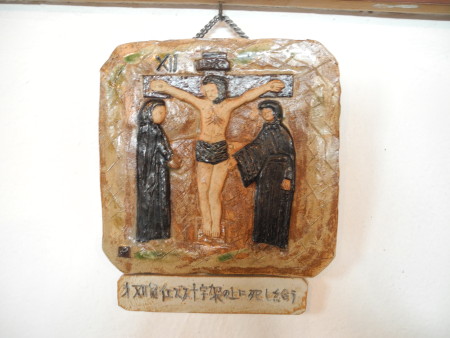
This is the pipe organ.
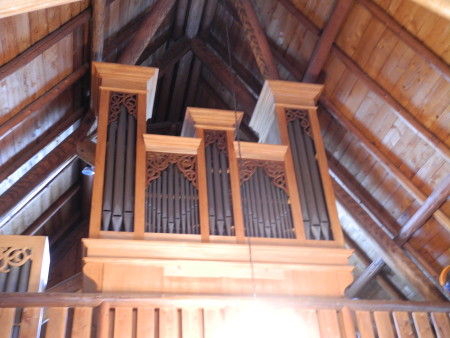
The ceiling of this church has a truss structure formed from exposed trees.
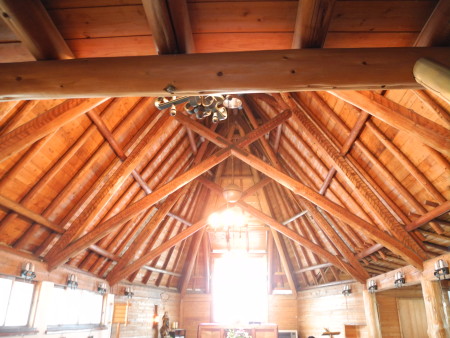 Next, we went to Kyu-Mikasa Hotel. This hotel opened in 1906, and many contemporary cultured persons and financiers were guests. The business activities of this hotel ended in 1970, but because many buildings and artifacts at the time of the opening remain, now the interior of the buildings are open to the public, like a museum. These buildings are designated as national important cultural property.
Next, we went to Kyu-Mikasa Hotel. This hotel opened in 1906, and many contemporary cultured persons and financiers were guests. The business activities of this hotel ended in 1970, but because many buildings and artifacts at the time of the opening remain, now the interior of the buildings are open to the public, like a museum. These buildings are designated as national important cultural property.
They are wooden buildings having 2 floors.
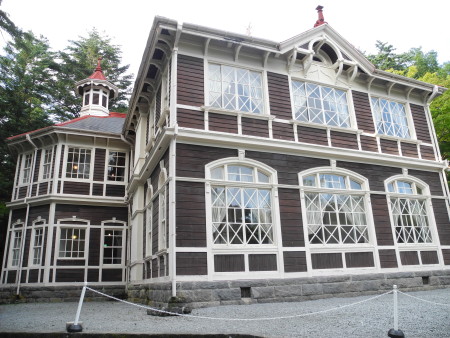
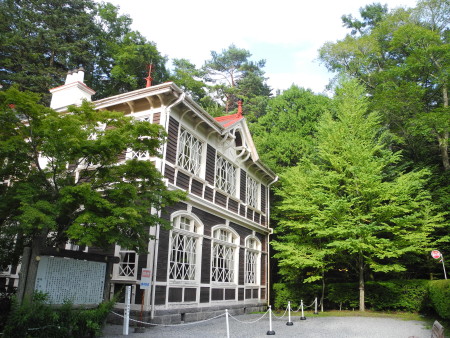
We entered here.
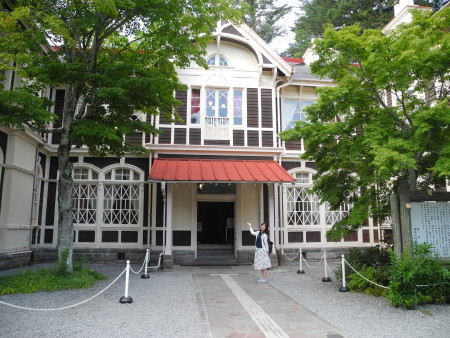
This is a room which was used as a lobby when the hotel was open for business activities. There were many drawing-room suites and dining suites used at that time here.
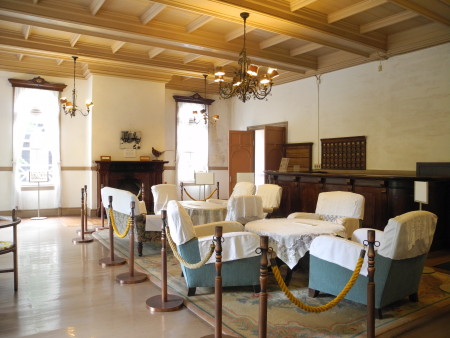
The rack behind the front desk seems to be boxes in which a key would have been stored. The number of guest rooms was 30.
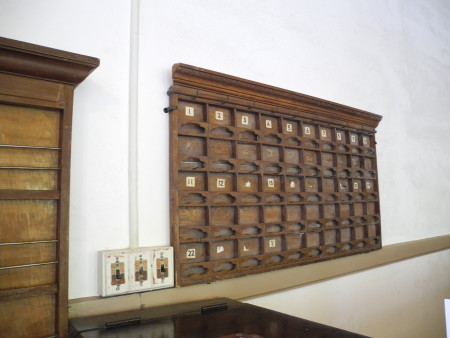
This is one of the guest rooms. The furniture is much smaller than that we use today, and I gathered that people in the Meiji Period were smaller than today.
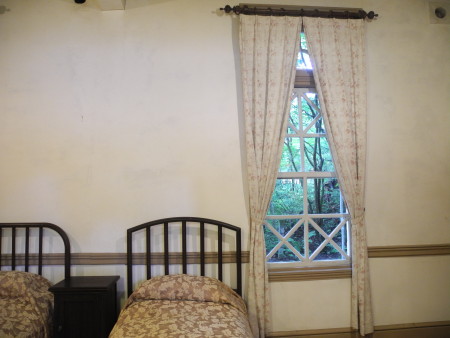
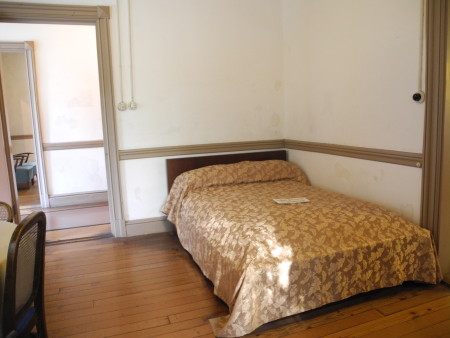
In the picture, there is a hallway and a stairway to the second floor over a glass window with a sloping rectangular shape.
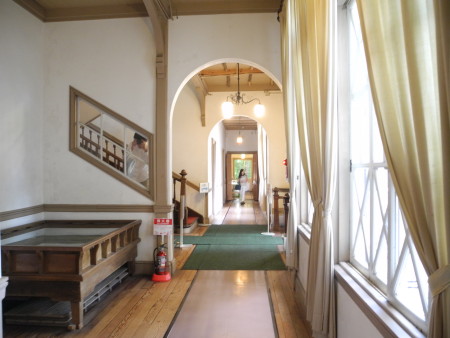
The central stairway to the second floor.
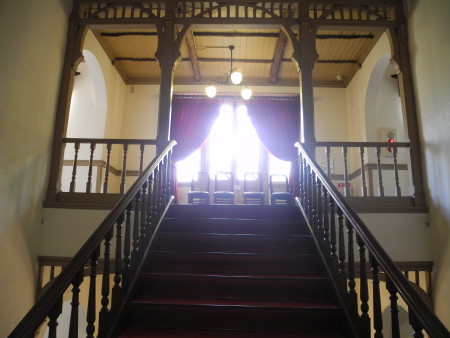
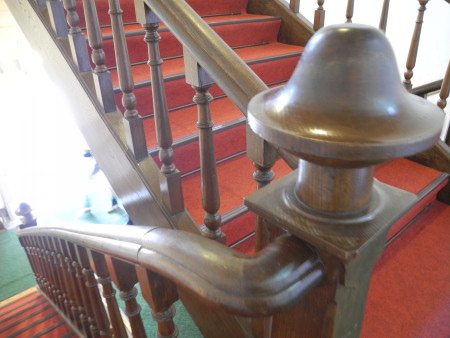
Guest rooms on the second floor. Each room has a fireplace, which enables us to get warm during winters in Karuizawa.
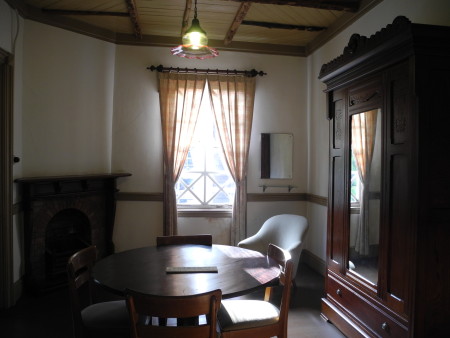
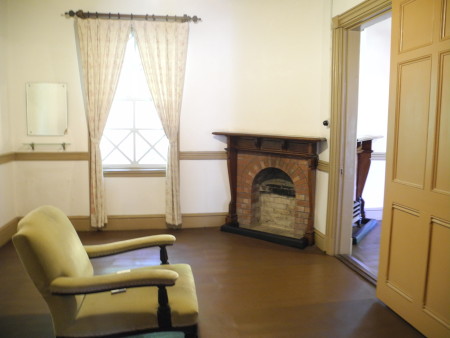
The furniture in each room has elaborate carvings.
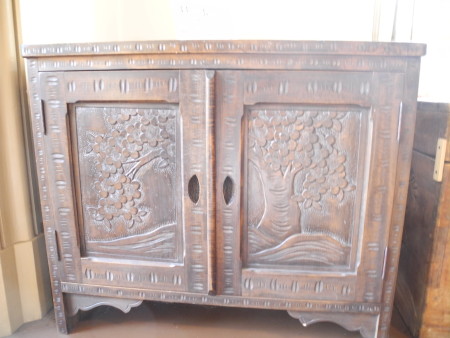
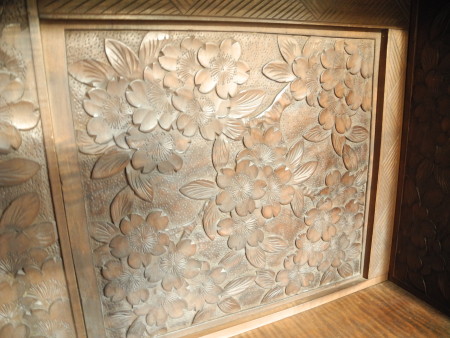
A room looked over the hallway seems to be a sun parlor.
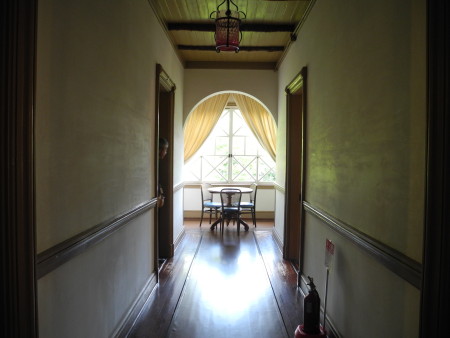
There were deep green plants in all over the garden when we saw the outside through the window.
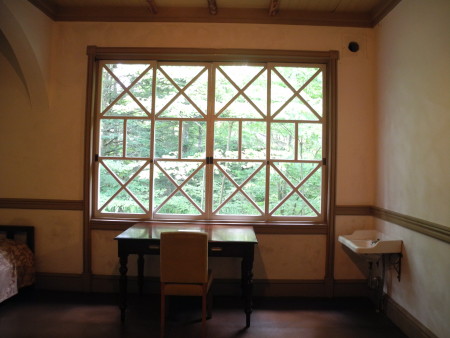
We saw the hotel again from the outside road after we exited the building.
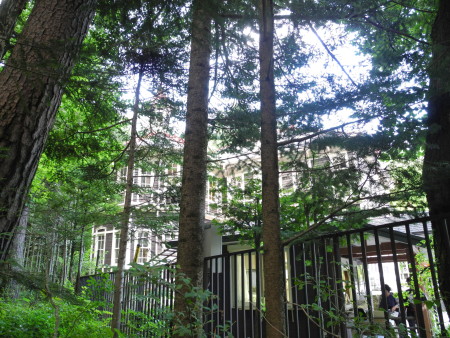
This is a tearoom “Mikasa Jaya KUNPEI” about 2 or 3 minutes from the hotel on foot. The shop was closed at about 5 o’clock in the evening.
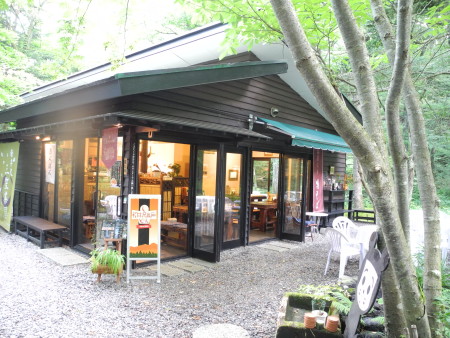
We saw this kind of scene here and there in Karuizawa.
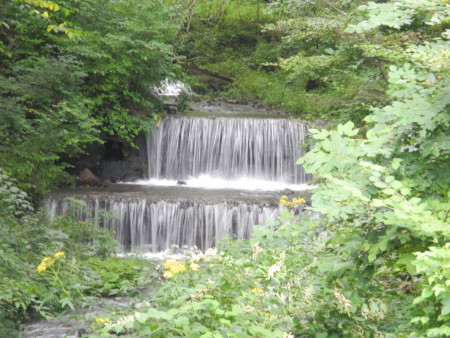
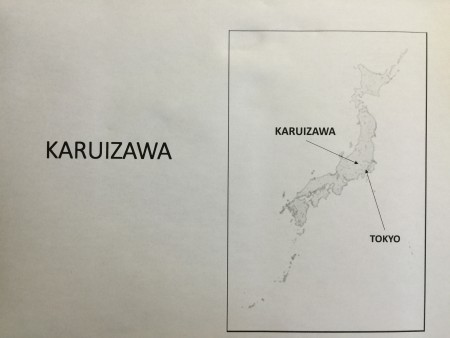


Leave a Reply